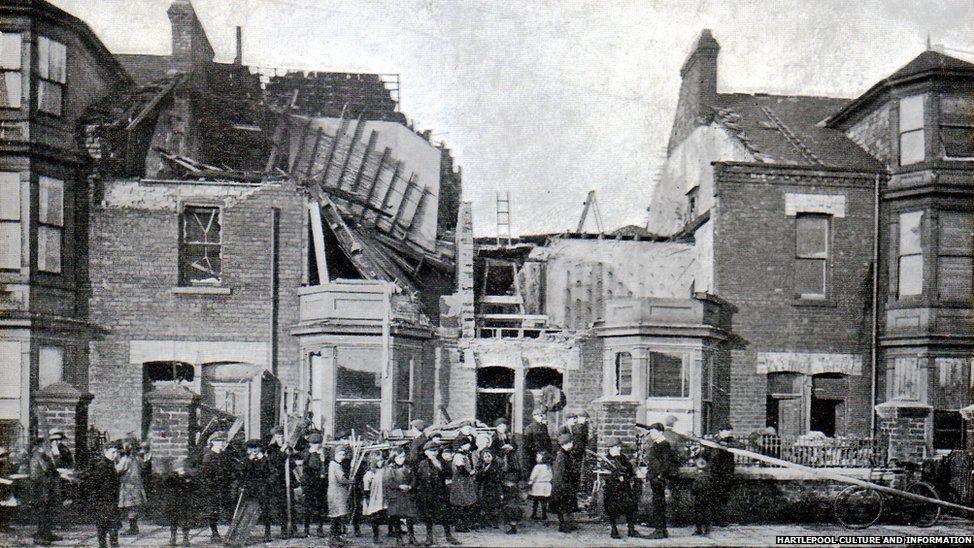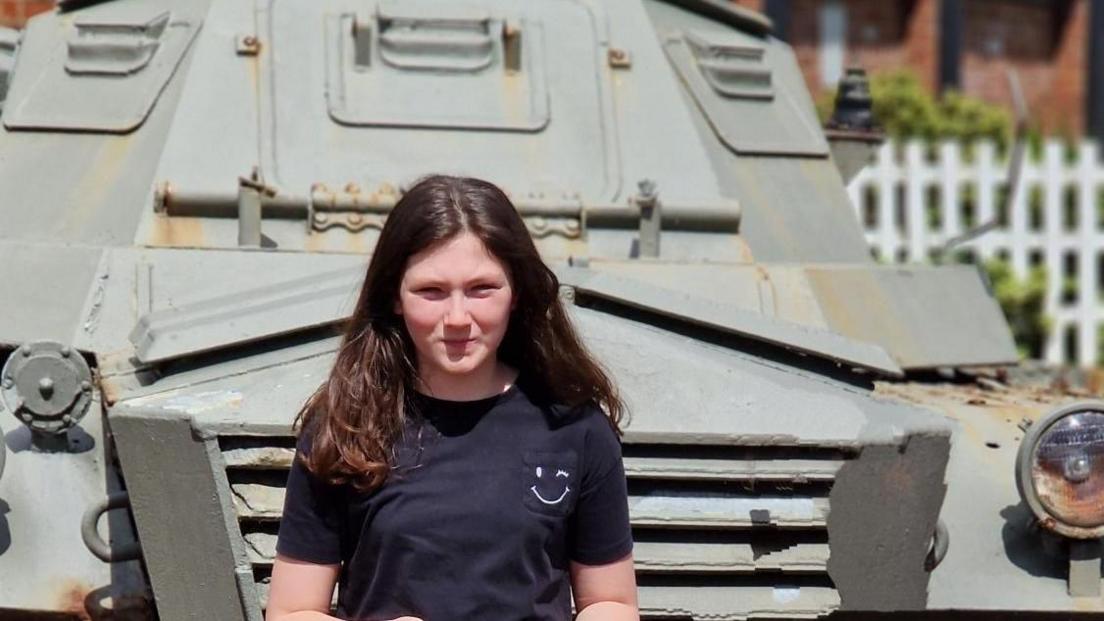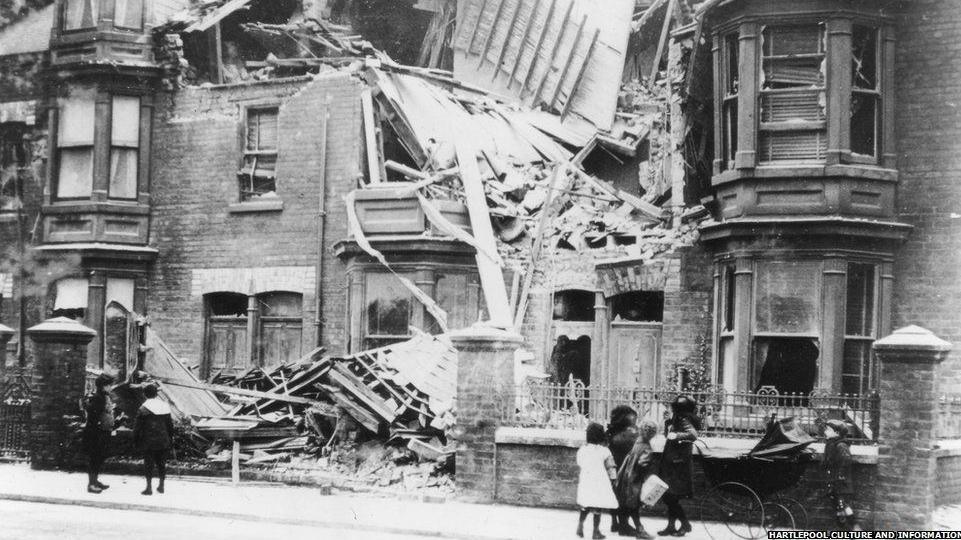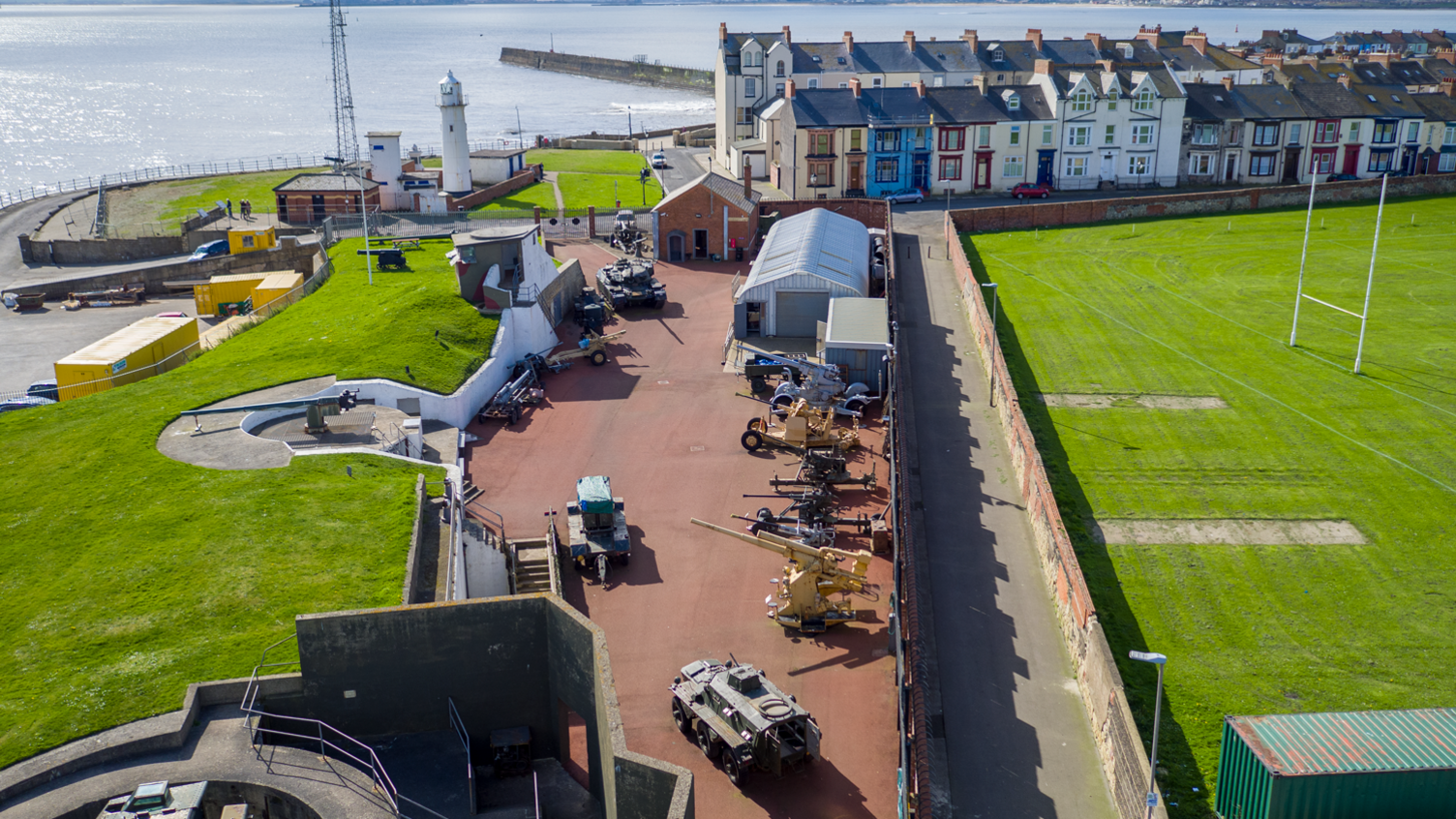Remembering six-month-old bombing victim

Dozens of buildings were destroyed or damaged in the shelling
- Published
An 11-year-old girl has told of her sadness at discovering her great-great aunt was the youngest victim of a World War One bombardment.
Eleanor Necy was just six-months-old when she was killed as German bombs hit Hartlepool, on 16 December 1914.
Her older sister Annie Necy survived and her story has been passed down the generations to Maisie, 11, who has been researching her family's history.
"I feel honoured to be part of the family, but I feel sad for people like Eleanor and my great grandma," she said.
A visit to Hartlepool's Heugh Battery Museum led to Maisie researching her family tree.
"When I looked up the town, I imagined if I was there and bombs started dropping I would be really scared," she said.
Over the last 12 months, Maisie has managed to trace her family back to the 1500s and she wants to raise awareness of Annie and Eleanor's story.

Maisie has been researching her family's history after visiting Hartlepool's Heugh Battery Museum
During the bombardment more than 1,100 shells fell on Hartlepool in just 40 minutes killing 130 people.
Annie, who was seven, Eleanor, and their mother Agnes, fled their home in Pilot Street, which was in the line of fire of German battleships.
Maisie discovered that a shop keeper offered to take baby Eleanor saying it would be "safer".
However, less than a minute later a bomb hit the shop killing the infant and the shop keeper.

The shelling lasted just 40 minutes killing 130 people
Annie, who became separated from her mother, was left partially deaf by the noise of the shelling.
When she eventually found her mother they discovered the baby had not survived.
"I feel really sad for all of the people that were there," Maisie said.
The girls' father, Peter Necy, was at sea on the day of the bombardment.
He had joined the Royal Navy, despite not being able to swim, and returned home after the war. He died in World War Two.
Maisie discovered that Annie died in 1991 and rarely talked about the bombardment.
She had four children, including Maisie's grandmother, Anne.

An event at the Heugh Battery Museum will mark the bombardment's anniversary
Maisie and her father Mark are planning to attend the annual ceremony marking 110 years since the bombing at the Heugh Battery Museum later.
Maisie, from Wrose, in Bradford, West Yorkshire, said she wanted to pay tribute and "remember people who lived through that time".
"They deserve to be acknowledged and recognised for what they went through," she added.
Follow BBC Tees on X,, external Facebook, external, Nextdoor and Instagram, external, external. Send your story ideas to northeastandcumbria@bbc.co.uk.
Related topics
- Published16 December 2014